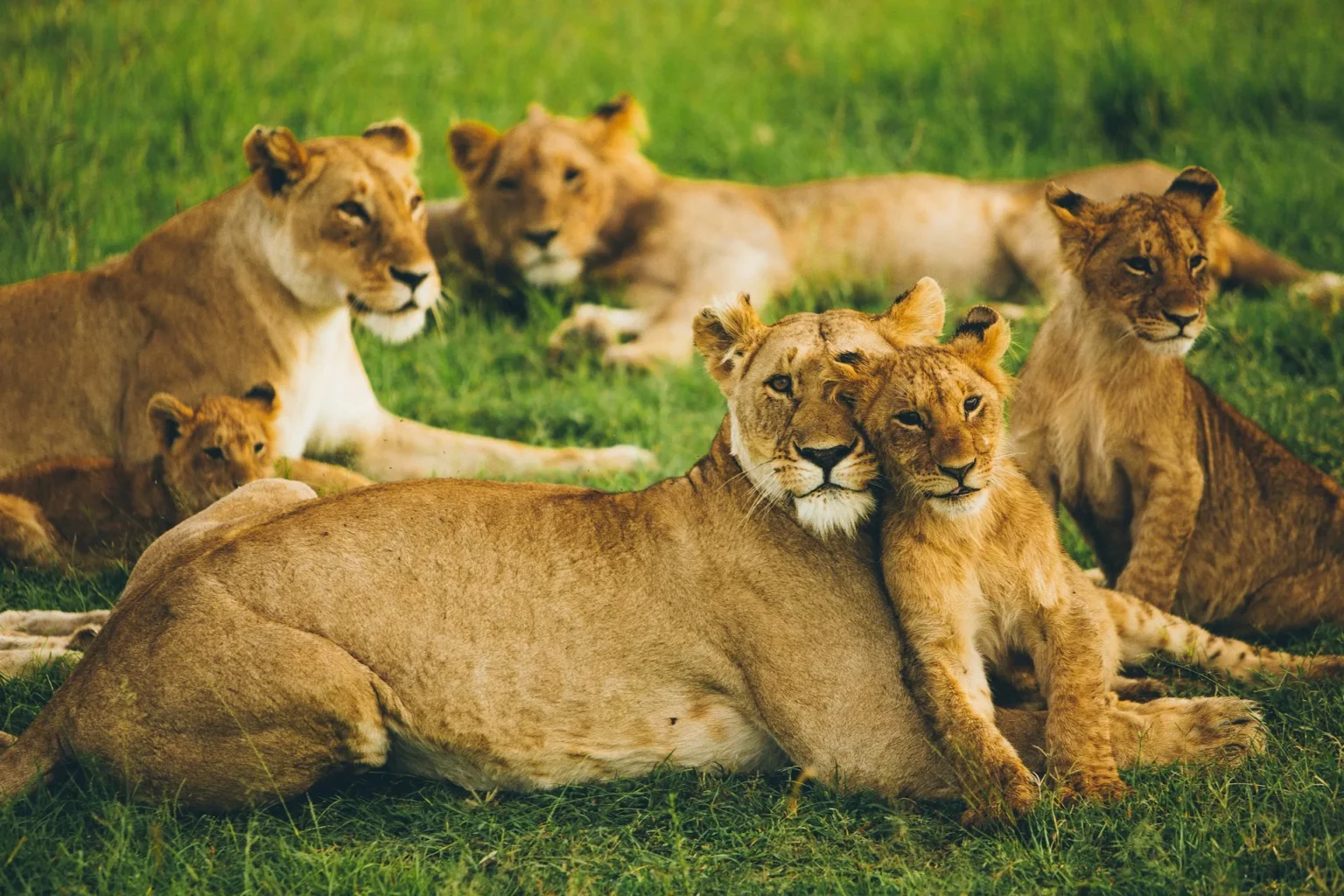The National Council of SPCAs (NSPCA) has welcomed a landmark move by South Africa’s Minister of Forestry, Fisheries, and the Environment, Dr Dion George, who has announced the imminent publication of a Lion Prohibition Notice. This notice will ban the establishment of new captive lion breeding facilities in the country.
Image of lions used for illustrative purposes/Leornard von Bibra/Unsplash
Calling the decision “long-awaited,” the NSPCA praised the reform as a turning point in the effort to dismantle an industry rooted in systemic cruelty. The organisation stated that the ban reflects years of relentless legal battles, public pressure, and on-the-ground inspections.
Industry of cruelty: What the NSPCA has exposed
The NSPCA’s investigations have consistently revealed severe animal welfare abuses within the captive lion industry. Over the past decade, inspectors have found lions living in squalid, overcrowded enclosures, cubs separated from their mothers for photo opportunities, and animals kept barely alive for the commercial value of their bones.
The organisation’s 2021 report exposed how lion farms have accelerated breeding cycles to maximise profits, often leading to inbreeding, deformities, and neurological disorders. Backed by expert testimony, the report called for an immediate end to the industry, not only to protect animal welfare but also to uphold South Africa’s conservation laws.
ALSO READ: Top 9 things to do in the World’s Best City
A legal and moral victory
Through sustained legal pressure, policy engagement, and public advocacy, the NSPCA has fought to end the commodification of lions for tourism, hunting, and the bone trade. The organisation successfully challenged South Africa’s lion bone export quota in the High Court and continues to pursue legal action against unethical practices.
“The captive lion industry has operated largely unabated for decades, inflicting severe animal welfare violations, damaging South Africa’s conservation reputation, and flouting constitutional obligations to protect sentient beings,” the NSPCA said in a statement. “While limited to new facilities, this ban sends a clear signal that the commodification of lions is no longer defensible.”
Thousands of lions still trapped
While the prohibition is a step in the right direction, the NSPCA cautions that thousands of lions remain confined in unacceptable conditions. These animals continue to depend on the NSPCA as the sole national body equipped to enforce welfare legislation.
The organisation is currently contesting a High Court application by the South African Predator Association, which seeks to reinstate the lion bone export quota—an outcome the NSPCA warns would undo hard-won progress.
“As the only animal welfare organisation in the country with a national inspectorate, we’ve fought for years to uncover the cruelty of the captive lion industry,” said Chief Inspector Douglas Wolhuter, Manager of the NSPCA’s Wildlife Protection Unit. “Without ongoing support, we cannot continue coming to the rescue of these suffering sentient beings.”
A call for unified enforcement
The NSPCA has urged provincial authorities to ensure enforcement aligns with South Africa’s Constitution and public demand for ethical wildlife management. It applauded Minister George’s leadership and reiterated that the ban must be the beginning of the end for lion exploitation in the country.
“We thank Minister George for his decisive leadership and call on provincial authorities to align enforcement with the Constitution and public demand for justice,” the organisation said.
The NSPCA remains steadfast in its mission: “This ban must mark the beginning of the end for lion exploitation. The NSPCA will continue fighting until every captive lion is freed from suffering.”
Follow us on social media for more travel news, inspiration, and guides. You can also tag us to be featured.
TikTok | Instagram | Facebook | Twitter
ALSO READ: Public pressure mounts on SANParks over Table Mountain’s decline




